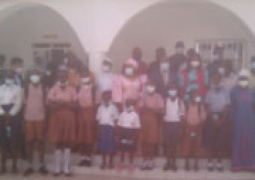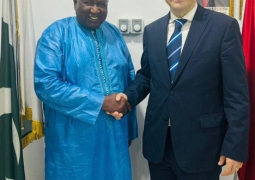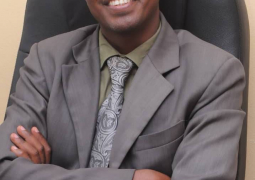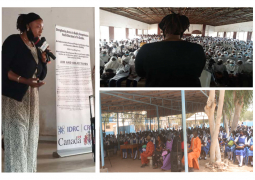
The training was designed to equip journalists and technical staff with the necessary skills, knowledge and ethical guidelines essential for effective and accurate reporting on the OIC summits.
In his opening remarks, Yankuba Dibba, Chief Executive Officer of The Gambia OIC Secretariat, emphasised the longstanding collaboration between the Secretariat and the media.
He highlighted that their role in publishing impactful stories and supporting the success of OIC events is crucial to the success of the summit.
Dibba acknowledged that the OIC serves as a platform to attract investments and the media plays a crucial role in promoting Gambia’s image to potential investors.
“I had a meeting recently with the chairman of the Gambia Chamber of Commerce; we discussed ways to address the plight of women and explore opportunities for investment. The OIC is a platform to attract investments, and the media is essential in promoting Gambia’s image to potential investors. Therefore, we appeal for your collaboration throughout the event.” he said.
He reminded that with Gambia being the second country in sub-Saharan Africa to host the OIC, the media and their partners could utilise the opportunity to showcase Gambia in a favorable light.
“Our aim is that post-OIC, The Gambia will be a hub for meetings, investment, conferences, and events. And you know what that means? We can use that as a platform to be able to bring in investments that will benefit women and young people, because we have a very youthful population in the Gambia.”
He talk about the importance of youth in any country's development, saying ‘If you look at it, 65% of our population is under 25 years old.’
To that end, he said using the media means they want to make sure they promote things that will bring about development and investment.
Alassan Tunkara, a member of the media sub-committee, emphasised the pivotal role the media will undertake in spotlighting the country’s potential as a center for investments, tourism, and global interaction.
He also talked about the significance of comprehensive, precise, and influential media coverage of the event.
“Therefore, in today’s training, we will not only learn technical skills for effective coverage, but also embrace our role as ambassadors of truth and integrity. Through our reporting, we can highlight the Gambia’s readiness to host significant gatherings, our resilience in the face of challenges, and our commitment to democratic principles and human rights,” he said.
He thus urged the participants to approach the training with dedication and enthusiasm.
Nfally Fadera, head of Brand and Communication at OIC Secretariat, explained that their projects and preparations are all designed to create a lasting legacy that will benefit everyone in the country.
“At the level of the secretariat, our guiding principle has been that the summit will be meaningless if we cannot link it to the improvement of the people of this country. That is why, when you look at all the projects that we have embarked on in preparation for the summit, they’re designed to improve life and livelihood in this country beyond the summit because we understand our mandate is to be legacy; one, a legacy that will benefit everyone in the country.”





